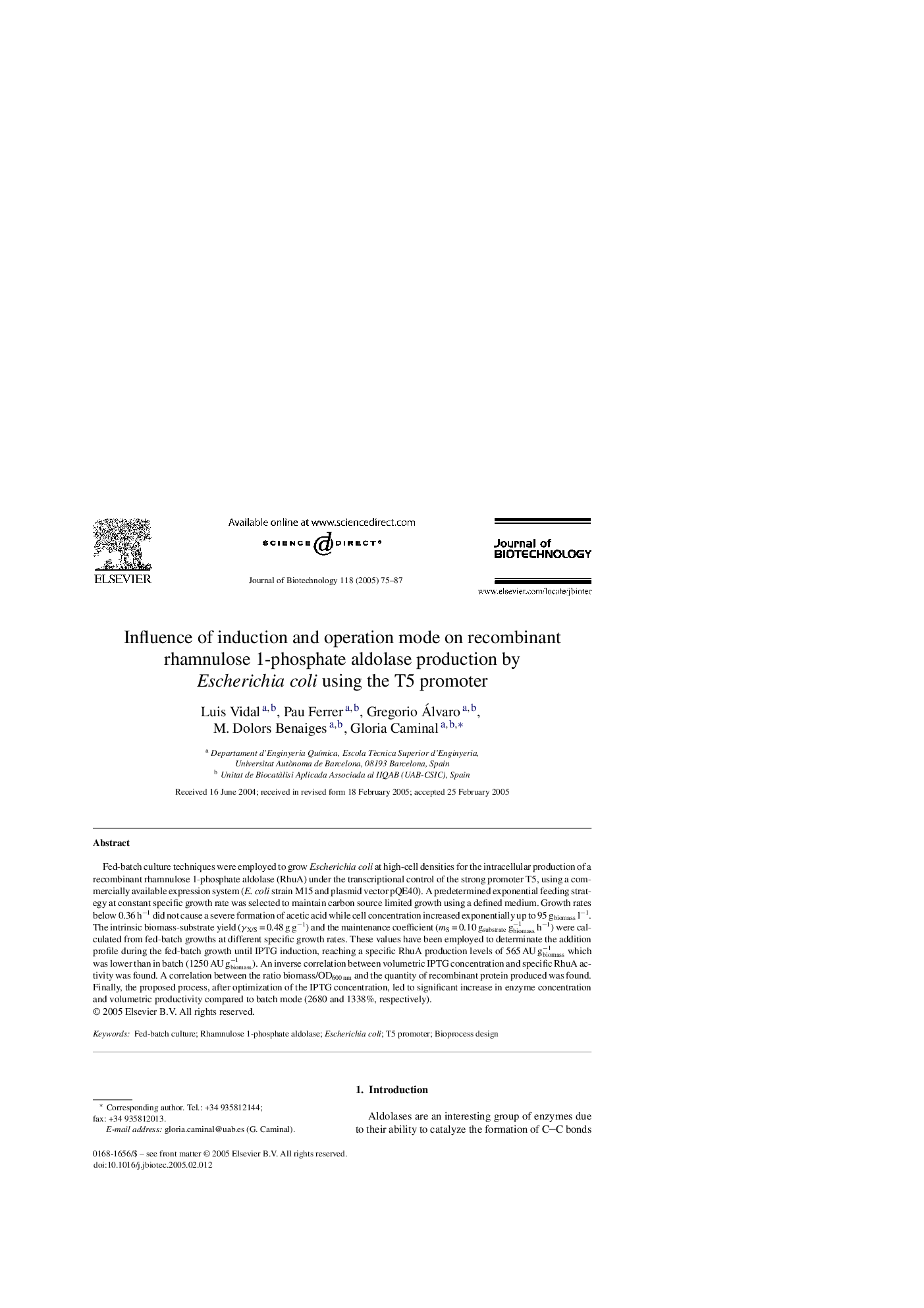| Article ID | Journal | Published Year | Pages | File Type |
|---|---|---|---|---|
| 9604357 | Journal of Biotechnology | 2005 | 13 Pages |
Abstract
Fed-batch culture techniques were employed to grow Escherichia coli at high-cell densities for the intracellular production of a recombinant rhamnulose 1-phosphate aldolase (RhuA) under the transcriptional control of the strong promoter T5, using a commercially available expression system (E. coli strain M15 and plasmid vector pQE40). A predetermined exponential feeding strategy at constant specific growth rate was selected to maintain carbon source limited growth using a defined medium. Growth rates below 0.36 hâ1 did not cause a severe formation of acetic acid while cell concentration increased exponentially up to 95 gbiomass lâ1. The intrinsic biomass-substrate yield (γX/S = 0.48 g gâ1) and the maintenance coefficient (mS = 0.10 gsubstrate gbiomassâ1 hâ1) were calculated from fed-batch growths at different specific growth rates. These values have been employed to determinate the addition profile during the fed-batch growth until IPTG induction, reaching a specific RhuA production levels of 565 AU gbiomassâ1 which was lower than in batch (1250 AU gbiomassâ1). An inverse correlation between volumetric IPTG concentration and specific RhuA activity was found. A correlation between the ratio biomass/OD600 nm and the quantity of recombinant protein produced was found. Finally, the proposed process, after optimization of the IPTG concentration, led to significant increase in enzyme concentration and volumetric productivity compared to batch mode (2680 and 1338%, respectively).
Related Topics
Physical Sciences and Engineering
Chemical Engineering
Bioengineering
Authors
Luis Vidal, Pau Ferrer, Gregorio Álvaro, M. Dolors Benaiges, Gloria Caminal,
